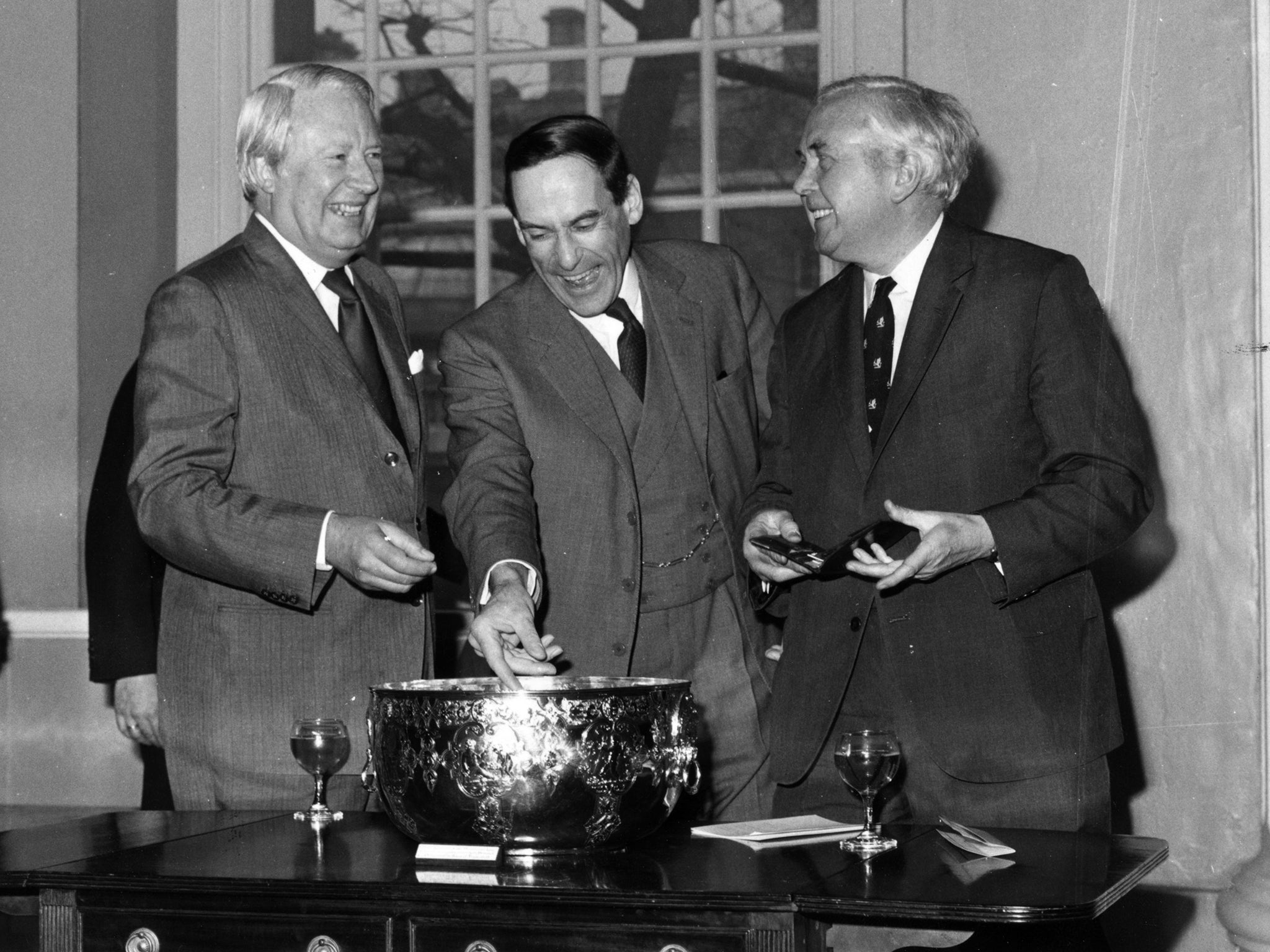That Ed Miliband is more unpopular in Scotland than David Cameron is remarkable
Uh oh... the galloping GNU is loose once more (that's the Government of National Unity - not the wildebeest)


That rare creature, the gnu, has been sighted again. Last spotted in the British habitat five years ago, it is galloping again. Not the wildebeest – also known as the gnu in African languages, “perhaps imitative of the sound made by the animal when alarmed” – but the acronymous GNU (Government of National Unity).
It was an idea to which Ted Heath clung in the hung parliament of February 1974. He thought that, because the Conservatives had won more votes than Labour, they had a right to be part of the government even though they had fewer seats. Harold Wilson didn’t agree and formed a minority Labour government.
And it was an idea that came up before the last election, when David Owen backed a campaign called Charter 2010, which wanted “a transformation of any hung parliament in 2010 into a stable and more representative government capable of dealing with Britain’s economic plight”. The campaign consisted of asking opinion poll questions about whether parties should “work together… or continue to oppose one another” (I am not making this up – “work together” was favoured by 89 per cent). It was overtaken by events when the coalition between Conservatives and Liberal Democrats did exactly what Lord Owen wanted.
Now another grandee has demanded a GNU be considered again. Kenneth Baker, the former chairman of the Tory party, has called for a “joint government of the Labour and Conservative parties” to avert the disaster of a hung parliament in which Alex Salmond, returning to the House of Commons as leader of a swollen contingent of Scottish National Party MPs, could dictate terms.
This GNU is no more viable than its predecessors, but it draws attention to one of the big changes in British politics. As the blogger Martin Hutchison pointed out last week, the collapse of Labour and the Lib Dems in Scotland is like the eclipse of the Official Unionist Party and the SDLP in Northern Ireland when power passed to the anti-establishment DUP and Sinn Fein. It is a permanent change as opinion, driven by the politics of national identity, seeks its most extreme – and therefore most effective – form of expression.
The scale of the disaster for Labour in Scotland since the referendum is only now sinking in. That Ed Miliband is more unpopular in Scotland than David Cameron is remarkable. Scottish Labour MPs are in shock. Labour is likely to lose nearly all of its 41 Scottish seats, which wipes out its apparent advantage under present constituency boundaries.
It has been the settled assumption for the past few years that Labour could be four percentage points behind in votes and still win the most seats (1974 all over again), but now that is no longer true. Without Labour’s Scottish top-up, Labour and the Tories compete on roughly equal terms.
However, as a senior Conservative told me last week, the Labour wipe-out in Scotland is “not just about seats but about message”. It conveys the impression that a Labour government would be an unstable construction built on appeasing the Nationalists. Most projections suggest Labour would fall short of a majority even with Lib Dem support, meaning that Miliband would have to turn to the SNP.
Miliband has handled this prospect badly. Whereas Ed Balls, his shadow Chancellor, ruled out a deal with the SNP straight away, Miliband refused to commit himself. Now it is too late. If the Labour leader ruled it out now, everyone would think he was responding to John Major, another troublemaking Tory grandee, who urged him to do so on Friday. And no one would believe him.
This is yet more evidence, should we need it, of what Professor Tim Bale, who has written a book about Miliband’s leadership, calls his “chronic indecision”. More alarmingly, perhaps, it suggests that Miliband thinks that a deal with the SNP is possible, or even desirable. He may think that the Trident nuclear defence system is dispensable. He may even think that the SNP’s “anti-austerity” rhetoric means something, when in fact it is distraction therapy for a party trying to pretend that the independent Scotland it wanted wouldn’t have been born into a fiscal crisis made worse by the fall in the oil price.
I want to keep our nuclear deterrent, and think it is important to have a plan to balance the books, but, even if I didn’t, I would not want such questions decided by haggling with Nicola Sturgeon and Salmond, her ambassador to London.
The sighting of a GNU may be significant not in itself but as a harbinger of constitutional uncertainty. If voters gain the impression that a Labour government means a dysfunctional hung parliament in which Salmond is the deal-maker, that would be quite a strong incentive to vote to keep the coalition we know.

Join our commenting forum
Join thought-provoking conversations, follow other Independent readers and see their replies